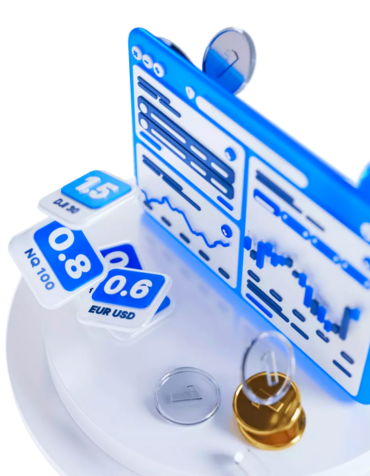We round up the best brokers that we believe offer best value for forex traders.





Trading the EURETB forex pair involves buying or selling it in the foreign exchange (forex) market. Here are the basic steps to trade EURETB:
To trade any forex pair, including EURETB, you'll need to open an account with a reputable forex broker. Ensure that the broker offers access to this specific EURETB pair.
Deposit funds into your forex trading account. The amount you deposit will determine the size of your trading positions.
Before making any trades, perform a thorough analysis of the EURETB pair. This analysis typically involves fundamental analysis (economic data, interest rates, geopolitical events) and technical analysis (price charts, indicators) to determine your trading strategy.
Most brokers offer trading platforms that allow you to execute trades. Familiarize yourself with the platform's interface and tools.
Choose whether you want to buy (long) or sell (short) the EURETB pair based on your analysis. Enter the trade order on your trading platform, specifying the amount (lot size) you wish to trade.
Executes the trade immediately at the current market price.
Sets a specific price at which you want your trade to be executed.
Sets a price at which your trade will be triggered if the market moves in a certain direction.
To manage risk, consider setting stop-loss orders to limit potential losses and take-profit orders to lock in profits at a certain price level.
Once your trade is executed, monitor the EURETB pair's price movement. Keep an eye on news and events that may impact the exchange rate.
When you achieve your trading objectives, either manually close the trade or wait for your predetermined take-profit or stop-loss levels to be reached.
After closing your trade, assess the outcome. Review your trading strategy and learn from both successful and unsuccessful trades to improve your skills.
Always practice proper risk management. Never risk more than you can afford to lose, and consider using leverage cautiously if available.
First up, we have the Breakout Strategy. This one is all about catching those big price movements that happen after a period of consolidation or range-bound trading. So here's what you do: take a look at the EUR/ETB chart and identify the key support and resistance levels. Then, wait for the price to break above resistance or below support with some strong momentum. If it breaks above resistance, go for a long position. And if it breaks below support, go for a short position. Don't forget to set your stop-loss orders just below the breakout level for long positions and just above it for short positions. Finally, when it comes to taking profit, you can either base your targets on historical price patterns or use trailing stops.
Next up is the Moving Average Crossover Strategy. This one relies on moving averages to help us identify trends and make profitable trades. Here's how it works: apply two moving averages (say 50-day and 200-day) on the EUR/ETB chart. When the shorter-term moving average (like 50-day) crosses above the longer-term one (like 200-day), it could be signaling an uptrend and giving us a buy signal. On the other hand, if that shorter-term moving average crosses below the longer-term one, it might mean a downtrend and give us a sell signal instead. To confirm these signals, you can also use other technical indicators like MACD or RSI. And don't forget to place your stop-loss orders below recent swing lows for long positions or above recent swing highs for short positions.
Lastly, we have our Fundamental Analysis Strategy which involves looking at economic indicators, news events, and monetary policy decisions that could impact our beloved EUR/ETB exchange rate! To get started with this strategy: keep an eye on economic calendars and central bank announcements for both the Eurozone and Ethiopia. Look out for key fundamental factors like GDP growth rates, inflation data, interest rate decisions, or even political developments that could influence the exchange rate. And that's it! By following these steps, you'll be on your way to making informed trading decisions based on fundamentals.